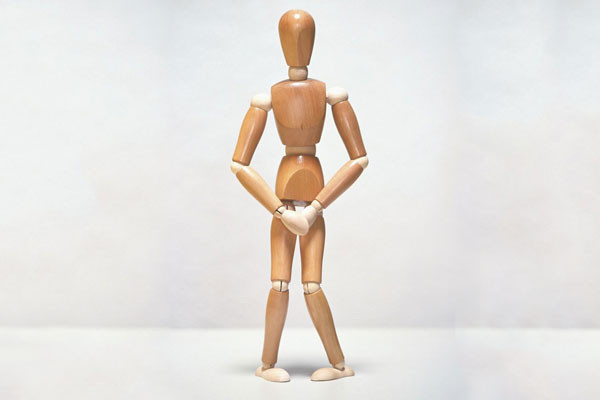Try these techniques to relieve common urinary symptoms without medication
For frequent urination or urgency in men, these methods really work. And you can always switch to medication later.
- Reviewed by Marc B. Garnick, MD, Editor in Chief, Harvard Medical School Annual Report on Prostate Diseases; Editorial Advisory Board Member, Harvard Health Publishing

If you are a man over age 50, chances are you know — or will soon — someone taking a medication for an enlarged prostate gland. In fact, by age 60, half of all men will have an enlarged prostate, a condition also known as benign prostatic hyperplasia, or BPH. By age 85, the number reaches 90%.
Urinary problems caused by BPH
BPH can cause bothersome problems like frequent urination at night, slow urine flow, difficulty urinating or completely emptying the bladder, and the urgent need to urinate at inconvenient times.
Do you have BPH? |
|
Irritative symptoms
|
|
Obstructive symptoms
|
What is BPH?
Unfortunately, most men will experience some kind of prostate problem during their lifetime. Prostate problems are generally associated with three conditions: prostatitis, cancer, and BPH.
BPH, or "enlarged prostate," refers to the excessive growth of the prostate gland. It usually occurs after age 50, likely due in part to a change in the balance of hormones as men get older. It's also believed certain male hormones such as dihydrotestosterone tend to act more strongly on the prostate gland later in life.
The urethra — the tube that conveys urine from the bladder to outside the body — passes right through the prostate, so it doesn't take much prostate growth to make urination difficult. As the bladder works against the blockage, its muscular walls thicken. This can cause problems like the need for more frequent visits to the bathroom and difficulty fully emptying the bladder.
Treatment options for BPH
Drug therapy relieves symptoms, and for severe problems surgery may be considered. But for men with milder symptoms that don't interfere much with their daily lives, simple changes in behavior can help to take the edge off urinary symptoms.
This approach is broadly available to men who have lower urinary tract symptoms that have been attributed to BPH, but who are not bothered enough to take on the small but finite risks of treatment, such as drugs or surgery.
The question that should drive treatment decisions is this: how much do your symptoms bother you? Whether it is getting in the way of doing the things you want to do should be the primary driver of treatment.
How bothersome is it?
Doctors use the International Prostate Symptom Score (IPSS) or the American Urological Association symptom score to measure how frequent a man's symptoms are. It's a seven-item questionnaire about typical BPH symptoms that provides a score from 0 to 35.
Typically, men who score 8 and above are more likely to think their condition needs treatment, but it varies from man to man. Above a score of 8 there is actually a spectrum of bother. Two men can have the same symptom score, and one can tolerate it just fine but the other can't.
Both tests cut through the subjectivity with this additional question: "If you were to spend the rest of your life with your urinary condition just the way it is now, how would you feel about that?" If the answer is, "I could live with it," then holding off on drug therapy or surgery might be best for you.
But not taking medication or having surgery doesn't mean "do nothing." It should include strategies to lessen symptoms or make them easier to cope with.
Living with BPH: A toolbox for managing urinary symptomsBPH progresses slowly, so most men can decide for themselves if and when they would like to consider medication or surgery. Men with mild to moderate symptoms often find that the changes in fluid intake, medication use, and bladder habits listed below can noticeably relieve BPH's bothersome effects. Medication use: Alter use of medications that could worsen urinary symptoms.
Fluid restriction: Change how much fluid you drink — and when — to prevent bothersome bathroom visits.
Bladder habits: Change the timing and manner in which you empty your bladder to reduce symptoms or make them less disruptive.
Bladder training:
|
A serious complication of BPH
Infrequently, BPH can cause acute urinary retention, or the inability to pass urine. This may be accompanied by pain in the lower abdomen. Acute urinary retention is a medical emergency. If you are unable to empty your bladder, you will need to visit an emergency room where a medical professional will relieve the obstruction. Your physician or nurse may also instruct you on how to safely relieve the blockage yourself by inserting a small tube (catheter) through the opening at the tip of the penis and passing it into the bladder to enable urine to flow properly. This is called intermittent catheterization.s
About the Reviewer

Marc B. Garnick, MD, Editor in Chief, Harvard Medical School Annual Report on Prostate Diseases; Editorial Advisory Board Member, Harvard Health Publishing
Disclaimer:
As a service to our readers, Harvard Health Publishing provides access to our library of archived content. Please note the date of last review or update on all articles.
No content on this site, regardless of date, should ever be used as a substitute for direct medical advice from your doctor or other qualified clinician.












